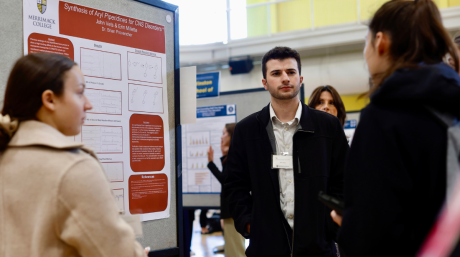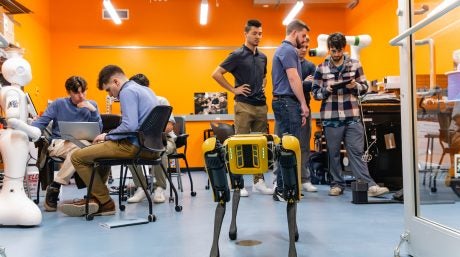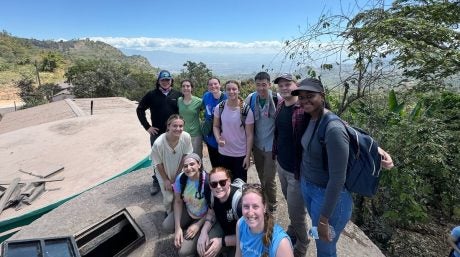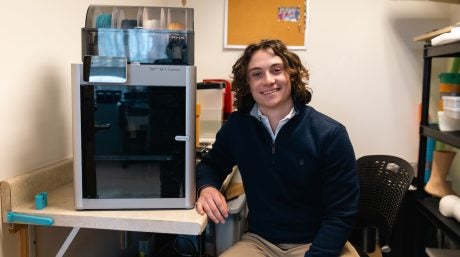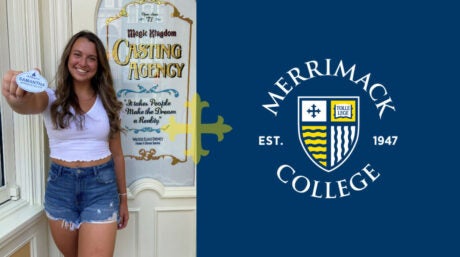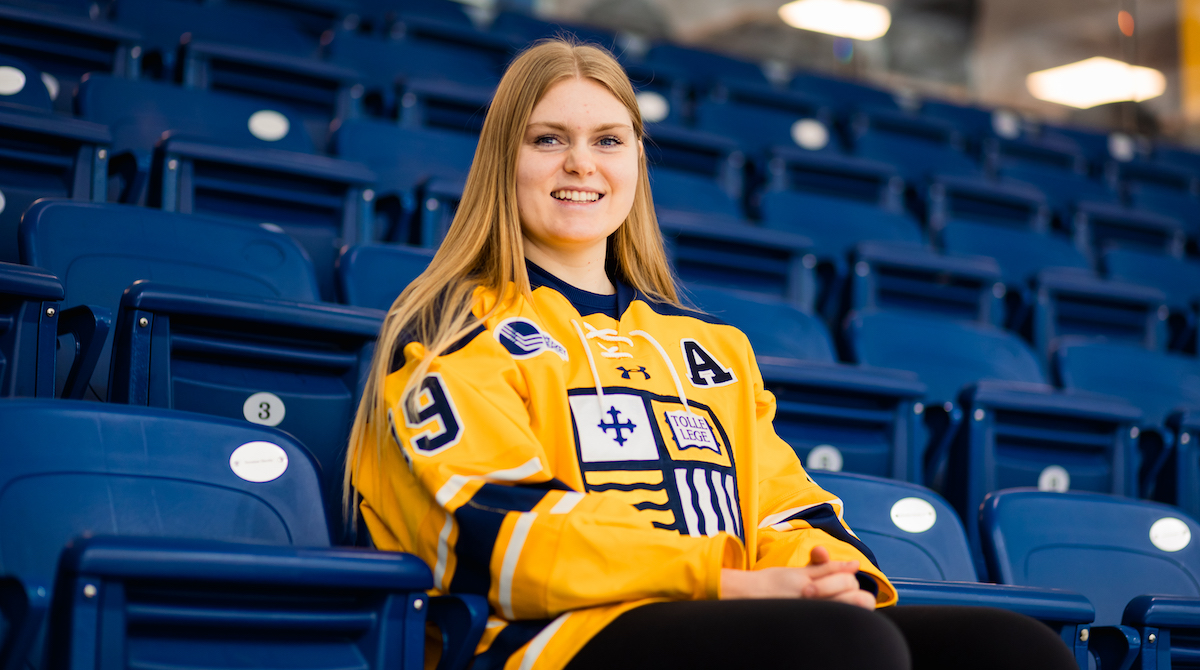Engineering & Computational Sciences News & Events
See news and events in Merrimack College’s School of Engineering and Computational Sciences.
News
Notable & Quotable
Dr. James Kaklamanos, associate professor of civil engineering, was one of two earthquake engineers interviewed by Interesting Engineering on the multitude of buildings that collapsed in Turkey and Syria following the devastating earthquake.
Cynthia Carlson, assistant professor of civil engineering, was first author on a paper, “Storm-Water Management as a Public Good Provision Problem: Survey to Understand Perspectives of Low-Impact Development for Urban Storm Water Management Practices Under Climate Change,” that won Best Policy-Oriented Paper of 2016 from the Journal of Water Resources Planning and Management, published by the American Society of Civil Engineers. The paper explored how storm water could be thought of as a “public good” and be managed better.
Mechanical Engineering Department assistant professors Anthony Di Carlo and Rickey Caldwell Jr., and former student Courtney Videchak ’19, have co-authored the paper, “Optimization of Spatially Distributed Soil Conductivities for Horizontal Ground Heat Exchanger” which has been accepted by the journal Applied Thermal Engineering.
Associate Professor James Kaklamanos was recently interviewed for a feature article on earthquakes in Turkey published on InterestingEngineering.com, a website that profiles the latest events, developments, and breakthroughs in engineering, science and technology. Kaklamanos teaches in the civil engineering department at Merrimack’s School of Science and Engineering.
James Kaklamanos, assistant professor of civil engineering, was honored by the American Society of Civil Engineers as one of this year’s 10 New Faces of Civil Engineering worldwide. The program recognizes the next generation of civil engineering professionals, 30 years and younger, who have demonstrated the potential to lead the field to new heights. Kaklamanos, who serves as faculty adviser to Merrimack’s ASCE student chapter, was cited for his exemplary work with students.
Azam Noori, Ph.D., assistant professor of biology, presented her research at the annual meeting of the American Society of Plant Biology (ASPB) in Portland, OR. Her presentation “Lemna minor for Silver Nanoparticles Phytoremediation” focuses on using common duckweed (Lemna minor) in removing silver nanoparticles from an aquatic environment.
The Boston Society of Civil Engineers Section (BSCES) honoredassociate professor of civil engineering James Kaklamanoswith the College Education Awardrecognizing his exceptional teaching and mentorship. The BSCES also named professor emeritus David “Doc” Westerling recipient of the Horne/Gaynor Award for his philanthropic activities in the public interest.
Dr. Craig Looney, associate professor in the department of physics, gave a presentation entitled “Making high-quality videos on an inexpensive DIY Lightboard (with technical tips relevant to all budgets)” at the Spring 2023 meeting of the New England Section of the American Physical Society.
Dr. James Kaklamanos, associate professor of civil engineering, published two peer-reviewed journal papers in Earthquake Spectra, which is viewed as one of the top journals in the field of earthquake engineering. The first paper develops a regional seismic velocity model for the U.S. Atlantic and Gulf Coastal Plains based on measured shear wave velocity, sediment thickness, and surface geology. The second paper investigates how current practices of input ground-motion selection influence site response analysis results and their variability, when considering different tectonic settings.
Associate Professor of Civil Engineering James Kaklamanos was recently profiled in a monthly feature article by the Seismological Society of America (SSA), as part of their “At Work” column.
Events
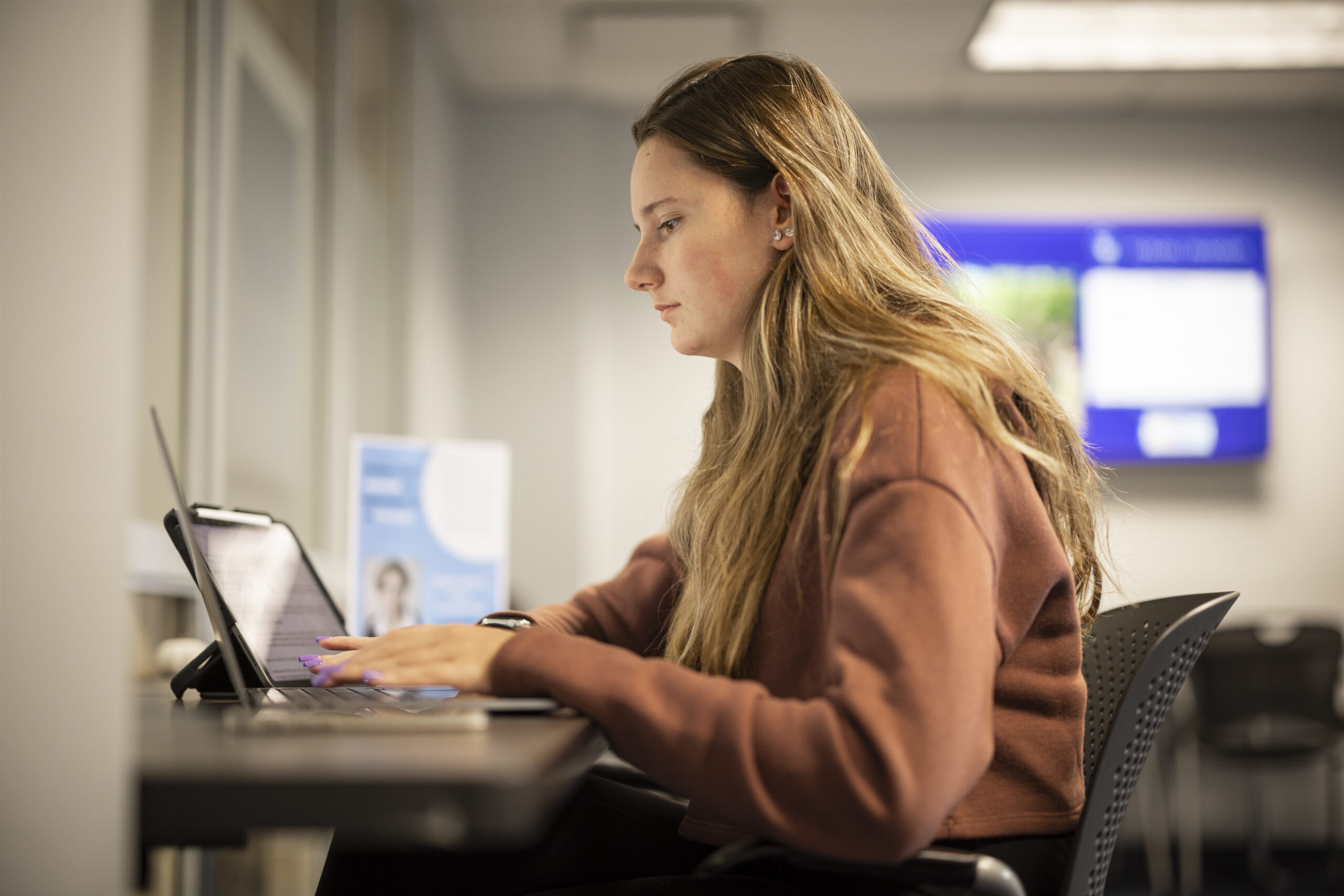
Graduate Admission Virtual Information Session
Learn about Merrimack's graduate programs, full- and half-tuition graduate fellowship opportunities, scholarships and financial aid, how to apply, and more!
